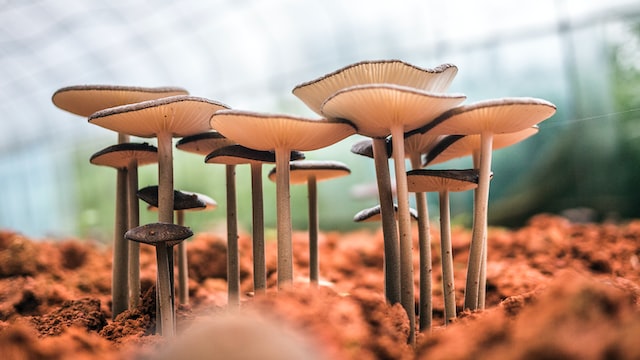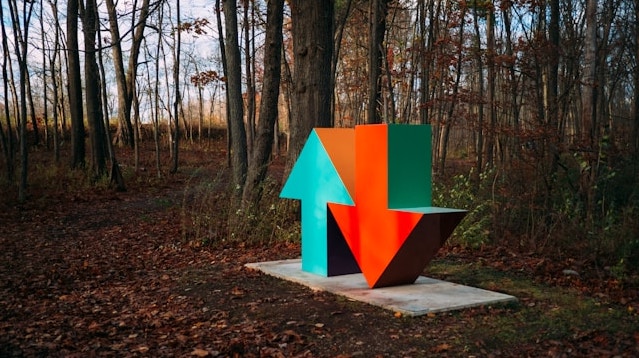As the current psychedelic renaissance continues, you’d have to be living under a rock not to see the glut of research that shows psychedelics (such as psilocybin) to be an effective treatment for numerous health conditions. The results are, at this point, impossible to deny. This is why, for the first time, Americans, when asked about the controlled use of psilocybin as a therapeutic or wellness tool, overwhelmingly expressed positive feelings towards it.

We’re feeling mighty positive about these findings too, as a matter of fact! Let’s dig in…
9 in 10 Americans Approve of Controlled Psilocybin Use
According to a new study, published in the American Journal of Bioethics Neuroscience, almost 9 in 10 Americans surveyed reported that they approve of the use of psilocybin in controlled, licensed settings. This was true whether it was to treat specific conditions, or to enhance general well-being. The study aimed to interrogate the current “moral status” of psilocybin in America, bearing in mind that it is still (erroneously) listed as a Schedule I drug under the Controlled Substances Act. This categorization means, that according to the powers-that-be, these substances have no medical use and a significant potential for abuse.

Authors Note the Benefits of Psilocybin
The study authors note (as we already know) that this categorization is crushingly incorrect. For a start many previous studies have found psilocybin to have significant medical potential. It is also proven to be the safest recreational drug — neither habit forming, nor toxic. They write that psilocybin is thought to be far physiologically safer than many of the traditionally prescribed pharmaceuticals on the market, as well as effective in treating psychiatric conditions. Additionally, they highlight the growing literature that finds psilocybin can promote numerous neuropsychological effects. These include mindfulness, increased prosocial attitudes, and improvements in psychosocial function (i.e. our relationships, and work life.)
Changing Morals Around Psychedelics
With the decriminalization of psilocybin sweeping through cities in the US, not to mention the actual legalization of psychedelics in countries like Australia, it makes sense that public opinion could be shifting. In the midst of all this reform, the researchers thought it was high time to investigate the ideas of “morality” relating to the medicinal use of psilocybin.

How The Study Worked
The study surveyed 795 participants between the ages of 18 to 92. These participants were collated to be demographically representative of American citizens in general, indicating a wide range of people. The researchers gave the participants basic information about psilocybin, and the particulars about the recent Oregon law which legalized the personal use of psilocybin in supervised settings. After this they were asked to imagine a similar law being passed, but now at the federal level.
Then, the participants were assigned one of two scenes, or vignettes, about a person taking psilocybin under the guidance of a trained professional. The first vignette was of a ‘treatment’ scenario. The individual was using psilocybin to ease treatment-resistant depression. The second vignette was an ‘enhancement’ scenario, with the individual taking psilocybin to improve overall well-being.
The participants were also provided with facts stating that psilocybin has been found to be “medically safe and non-addictive if administered in an appropriately controlled setting, both for those with certain mental health disorders and for healthy individuals.”
After all this, the participants were asked to “morally evaluate” the supervised use of psilocybin.
Participants Show ‘Strong’ Support for Psilocybin

When the results were finally in, the participants were found to have “strong bipartisan support” for both ‘treatment’ usage (89%) and ‘enhancement’ usage (85%).
The authors of the study noted that approval went slightly down in the older and more conservative pools of participants, although approval for ‘treatment’ usage was still impressively high, with 91% of liberals and 86% of conservatives having positive feelings towards it. When faced with questions about ‘enhancement’ usage, support went slightly down on both sides, with 89% of liberals and 78% of conservatives supporting it.
The authors stated; “Across conditions, favorable attitudes toward controlled psilocybin use were linked to the moral foundation of care, suggesting that a concern for both patients’ and non-patients’ well-being underlies the tendency to approve of controlled psilocybin use,”
Results Could Indicate Support for Psilocybin Reform
It is notable that the participants of this study were not questioned about unsupervised or recreational use of psilocybin. This study was specifically stated to be in regards to the recent law passed in Oregon, and the potential of similar reforms. However, the researchers agree that these results show that the US population is likely to be supportive of the supervised use of psilocybin, if such a thing were to be put on the table. It is pertinent too, that much of psilocybin research in the US has been focused on healing the trauma of Veterans, a bipartisan issue that those on every side can get behind.
The researchers said;
“Given such bipartisan positive attitudes, future legislative changes allowing psychedelic use in supervised settings for both purposes, even at the federal level, seem unlikely to trigger major public backlash, assuming similar background information about (known) benefits or risks, which may change over time,”
They conclude; “If the field can overcome scientific inaccuracies, pursue rigorous research, and build trust—then psychedelics such as psilocybin may one day be seen as a mainstream means to treat mental illness and possibly also to promote overall well-being.”

So there you have it. It seems psilocybin is beginning to open even the minds of those who haven’t even taken it yet! Public opinion is vital to make changes, and the more that people are made aware of the positive effects of psychedelics, their support will only grow.





